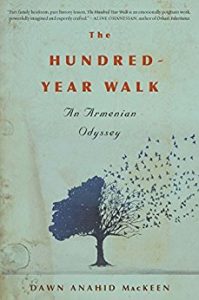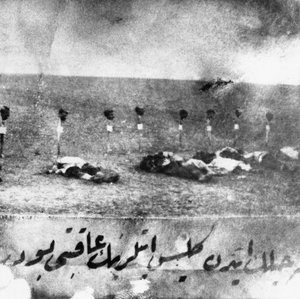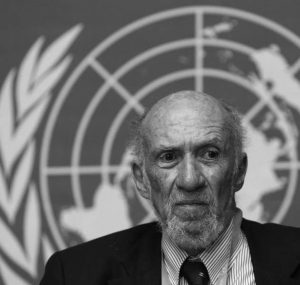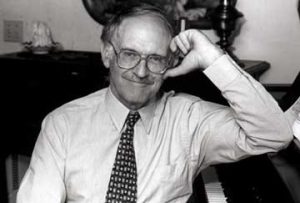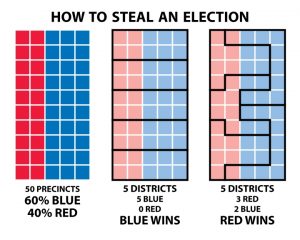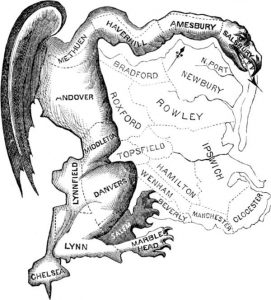Podcast: Play in new window | Download
The Hundred-Year Walk: An Armenian Odyssey
April 24 marks the 101st anniversary of the Armenian genocide. Until recently, most Americans never heard of the genocide and rarely hear the individual stories of those who survived atrocities at the hands of the Ottoman Turks. Journalist Dawn Mackeen came to learn the personal account of her grandfather Stepan Miskjian after reading notebooks that he had kept a century ago chronicling his story. She then embarked on a multi-year journey, using her research skills to scour newspapers and archives around the globe to recreate, and then actually retrace, his steps taken 100 years earlier through Turkey and Syria.
She has written an eye-opening book, The Hundred-Year Walk: An Armenian Odyssey. It recounts not only her grandfather’s experience, but those of the approximately 1.5 million Armenians who were tortured and killed in the genocide that began in 1915. As many Armenian genocide survivors did, Dawn’s grandfather escaped just before the members of his caravan with were massacred by disguising himself as an Arab.
Guest – Dawn Mackeen is an award-winning journalist who spent nearly a decade researching and writing her grandfather’s story. Previously, she covered health and social issues for Salon, SmartMoney, and Newsday, where her investigative series on assisted living facilities’ poor care helped prompt legislative reform. Her work has appeared in the New York Times Magazine, Elle, the Sunday Times Magazine (London), the Los Angeles Times, and elsewhere. She lives in Southern California.
—-
International Law and the State of Israel: Legitimacy, Exceptionalism and Responsibility
At the request of its member states, the United Nations economic and social commission for Western Asia commissioned a report on Israeli practices towards the Palestinian people and the question of apartheid. Apartheid is a crime against humanity under international law. The report found Israel in violation of three international laws. One of them, the 1998 Rome statute of the international criminal court states that “the crime of apartheid means inhumane acts committed in the context of AN institutionalized regime of systematic oppression and domination by one racial group over any other racial group or groups and committed with the intention of maintaining that regime.” The commission report concluded that Israel operates in an Apartheid regime against Palestinian citizens of Israel, Palestinians in East Jerusalem, Palestinians in the West Bank and Gaza, and Palestinian refugees and exiles.The commission made recommendations to dismantle the apartheid regime. In response, Israel and its ally the United States of America had to report rejected and caused the resignation of the head of the commission.
We speak with two anti- apartheid activists. Both have just returned from an important conference on Israel held at the University of Cork, in Cork Ireland. The conference had twice been prevented by pro Israeli forces.
Guest – Richard Falk is the former UN Special Rapporteur on Palestinian human rights and Professor Emeritus of International Law at Princeton University. Since 2002 he has lived in Santa Barbara, California, and taught at the local campus of the University of California in Global and International Studies and since 2005 chaired the Board of the Nuclear Age Peace Foundation.
Guest – Author Joel Kovel, politician, academic, and eco-socialist. He has lectured in psychiatry, anthropology, political science and communication studies. He has published many books including the controversial Overcoming Zionism: Creating a Single Democratic State in Israel/Palestine.
—-
Partisan Gerrymandering In Wisconsin
In a backlash to the 2008 Obama election victory, two years later, in 2010, the Republican Party of Wisconsin won both houses of the legislature and the governorships. The Republicans then redrew the legislative map making it impossible for the Democratic Party to capture a majority of the legislative seats at any time in the decade, no matter how many votes they get. This is called partisan gerrymandering, the process of drawing distorted legislative districts to undermine democracy. Now, in Wisconsin, instead of voters choosing their legislatures, the legislatures choose the voters. As a consequence people in Wisconsin have had their great university system harmed, right to work laws have been enacted wrecking their unions, and there has been substantial environmental damage.
Guest – Professor William “Bill” Whitford who recently retired as a Law Professor at the University of Wisconsin. He is the lead plaintiff in a federal lawsuit against partisan gerrymandering. His cases is likely to be heard in the Supreme Court. In the case Whitford v Gill 12, Wisconsin voters are challenging the constitutionality of the states Republican drawn legislative maps. Heretofore, the Supreme Court has been unwilling to get involved. This case may change that and restore a measure of democracy to a broken system in Wisconsin, and later elsewhere.
—————————————————–
